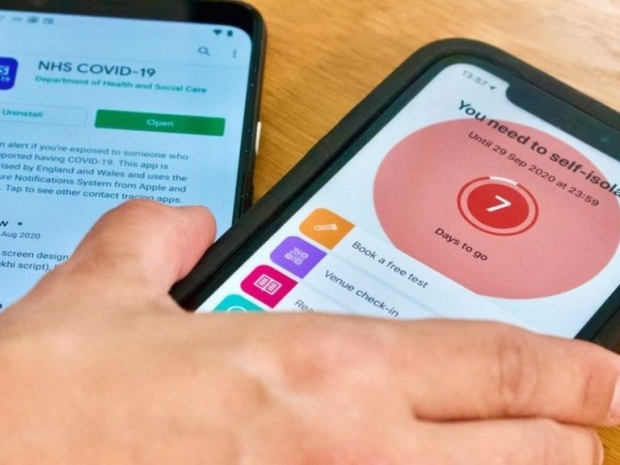Because of the error, thousands of people were not told to quarantine even when they should have been.
The app was launched on 24 September and there have been 19 million downloads since. It's built using Google and Apple's Bluetooth Low Energy-based system, which monitors nearby phones. If someone tests positive for COVID-19, their app can alert the phones that they were in contact with.
The UK originally planned to use its own app, sidestepping the Google and Apple system, but reversed course in June.
However since its launch, the app flagged few users for exposure and engineers figured out the reason why last week.
The app was originally built to simply recommend that anyone closer than two meters for more than 15 minutes to someone who later tested positive should quarantine. But just before the launch, it was adjusted to consider when the sick person's symptoms began.
Research shows that people tend to have high levels of virus in their nose and throat, and may be more contagious, around a day before they start to show symptoms.
Levels stay high the first few days of symptoms, and then drop off. If someone was in contact with a sick person outside of that window, the UK app would consider the interaction less risky. If they were in contact inside of that window, on the other hand, it would only take three minutes of contact to trigger an alert.
The adjusted app did calculate those new risk levels. But the thresholds at which a person would get an alert were left unchanged, according to a government blog post. Without the updated thresholds, a user could have spent up to 15 minutes with a highly infectious person and up to 40 minutes with a less-contagious person without getting an alert, according to The Guardian.




